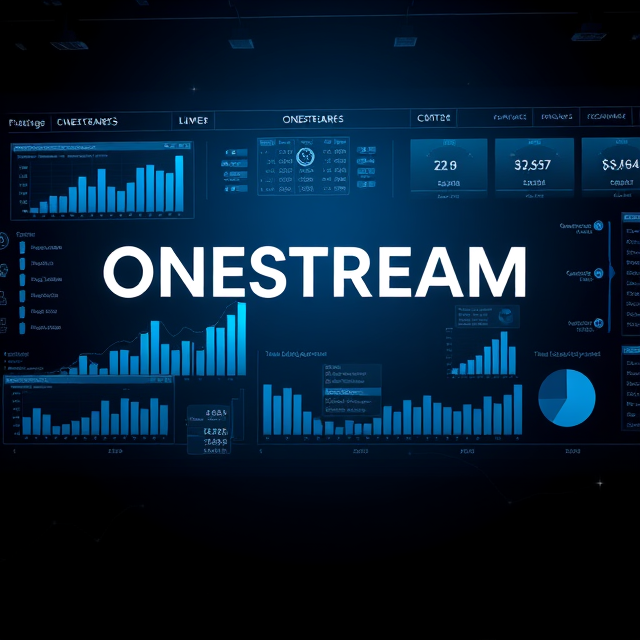OneStream is a versatile financial management platform that unifies planning, budgeting, forecasting, and reporting into a single solution. Its ability to consolidate data and deliver actionable insights makes it essential for organizations seeking agility and precision.
A standout feature of OneStream is its custom Business Rules, enabling automation of complex financial processes, streamlined workflows, and improved data accuracy. By leveraging Business Rules, organizations can minimize errors, ensure compliance, and focus on strategic decision-making. To better understand how Business Rules can be applied effectively, it’s essential to first explore the different types of Business Rules available in OneStream.
In this guide, we’ll delve deeper into the value of OneStream Business Rules, how they transform financial management, and best practices to drive efficiency in your workflows.
What are business rules?
OneStream Business Rules are custom scripts written in VB.NET that allow users to automate tasks like data manipulation, calculations, and validation within the platform. By writing and applying these rules, businesses can automate complex financial processes, ensuring accuracy and consistency across all financial operations.
Key features of business rules
- Customizable: Tailor business rules to fit your organization's unique financial workflows.
- Reusable: Apply the same rules across multiple areas of OneStream, ensuring consistency and saving time.
- Flexible: Use business rules for calculations, validations, data imports, and more.
- Seamless Integration: Easily integrate OneStream with other financial systems, ensuring smooth data flow across platforms.
Types of business rules
OneStream provides a range of business rule types, each serving a specific purpose. Let’s break down the most important ones:
- Finance Rule
The Finance Rule enables multi-dimensional financial calculations within OneStream. For example, it can automate balance sheet calculations or cash flow statements by referencing financial formulas.
- Parser Rule
Parser Rules clean and transform data before it is loaded into OneStream. They help in formatting external data—whether from flat files or other databases—ensuring it meets the required standards.
- Connector Rule
If your organization uses external systems like SAP or Oracle, the Connector Rule helps map and transfer data from these systems into OneStream, simplifying integration.
- Conditional Rule
Conditional Rules filter out unwanted or irrelevant data during imports. For instance, they can skip over null values or irrelevant records, ensuring only clean, usable data is imported into the system.
- Derivative Rule
Derivative Rules allow you to calculate new values based on already imported data. For example, you can derive metrics like "gross margin" from sales and cost data.
- Cube View Extender
This rule is used to customize the appearance of cube views in OneStream. Apply conditional formatting or adjust how data is displayed within cube views for better data visualization.
- Dashboard Data Set
The Dashboard Data Set rule generates custom data sets for OneStream dashboards, allowing you to create dynamic data tables that display key financial metrics.
- Dashboard Extender
This rule adds interactivity to OneStream dashboards. For example, it can trigger actions based on user inputs, like updating financial calculations when a user selects a specific department.
- Dashboard XFBR String
With the Dashboard XFBR String rule, you can dynamically generate and manipulate text on dashboards, such as creating lists of departments based on user selections.
- Extensibility Rule
The Extensibility Rule extends the functionality of other business rules. For example, you can create a notification rule to send an email after a task finishes.
- Spreadsheet Rule
The Spreadsheet Rule integrates with OneStream's Excel add-in, allowing you to display and analyze financial data directly in Excel, without leaving the OneStream platform.
Advanced features: Reference assemblies & global functions
For businesses looking to take customization a step further, OneStream offers Reference Assemblies and Global Functions. These advanced features allow you to create reusable functions and logic that streamline rule creation across the platform.
- Reference Assemblies: Reuse business rules across multiple areas of OneStream by calling them from other rules, enhancing consistency.
- Global Functions: Share common formulas and logic across different rules to ensure consistency and reduce redundant logic.
Conclusion: Why business rules matter
OneStream's Business Rules are a game-changer for organizations looking to optimize financial operations. Whether it's automating complex financial calculations, integrating external data, or customizing dashboards, Business Rules offer the flexibility and power to streamline processes and improve financial management.

By mastering the various Business Rule types—like Finance Rules, Parser Rules, and Dashboard Extenders—and using advanced features such as Reference Assemblies and Global Functions, businesses can fully leverage OneStream’s capabilities and create a more efficient and streamlined financial management system. To explore more about implementing and designing business rules in OneStream, refer to the official documentation here.

